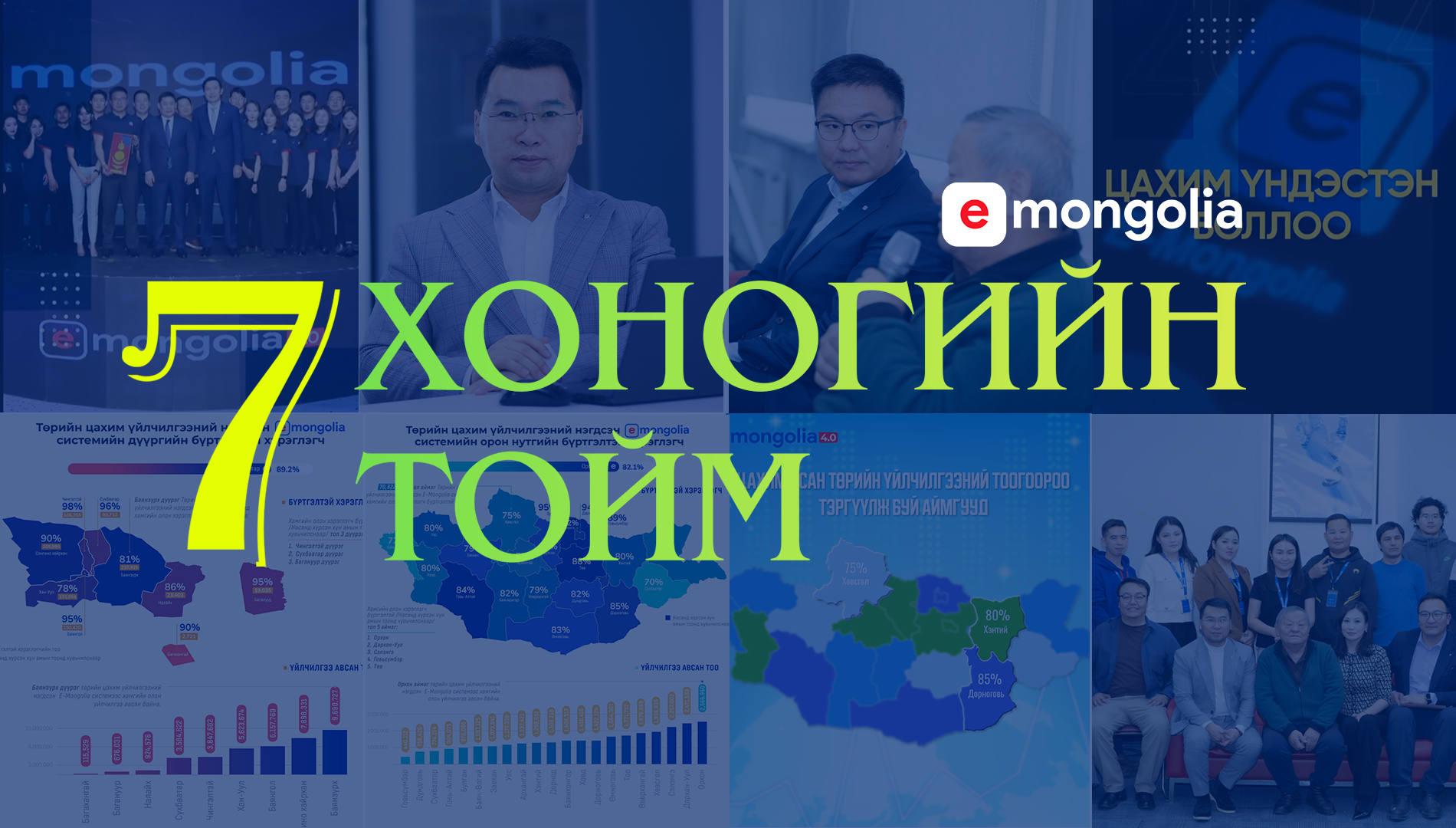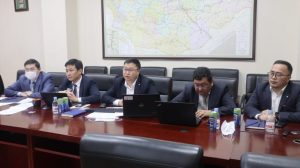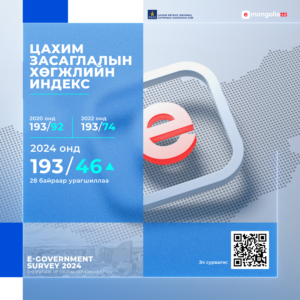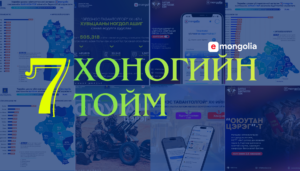- The Government of Mongolia has recognized the E-Mongolia system as one of the 32 major achievements accomplished over a four-year period

As of the end of 2024, the E-Mongolia system has accumulated 1,950,000 users and successfully digitized 1,263 government services from 87 organizations. The system has facilitated 65 million successful transactions, leading to the following savings in time and costs associated with accessing government services:
- • Time savings: MNT 1,062,855,266,261
- • Paper cost savings: MNT 5,041,861,264
- • Transportation cost savings: MNT 70,481,109,976
In total, the system has generated an overall savings of MNT 1,138,378,237,501.
Publicist B. Baabar expressed his gratitude to all public servants who have become pioneers and key contributors to digital development
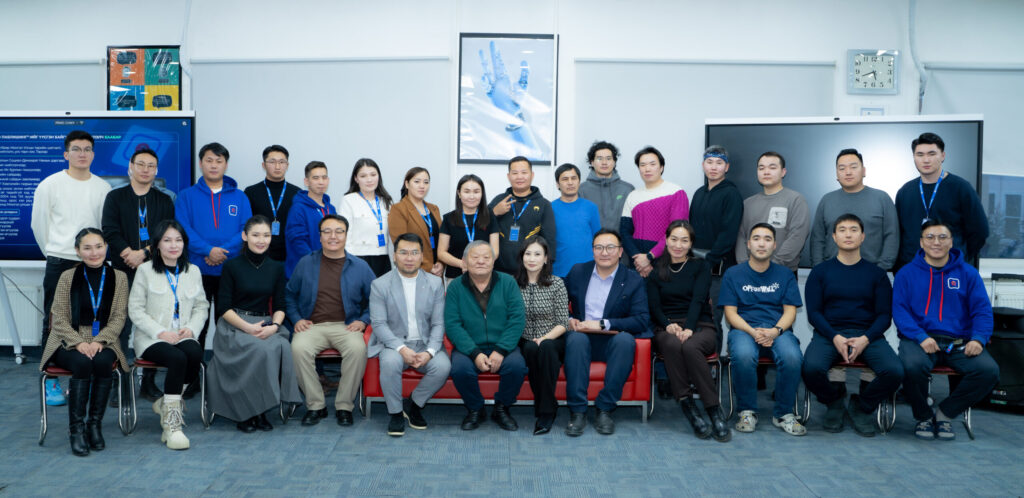
The "E-Mongol Academy" state owned enterprise continues to organize a range of activities aimed at enhancing the knowledge and skills of its employees. As part of this initiative, the academy held an informal meeting with B. Baabar, a recipient of the State Prize of Mongolia, and a prominent journalist and political figure of the 20th century. During the meeting, they engaged in a discussion on the topic of "The Development of Mongolia," listened to the perspectives of the younger generation, and exchanged views on the challenges facing the country.
The provinces of Khentii, Dornogovi, and Khovsgol are the most successful in implementing digital government services
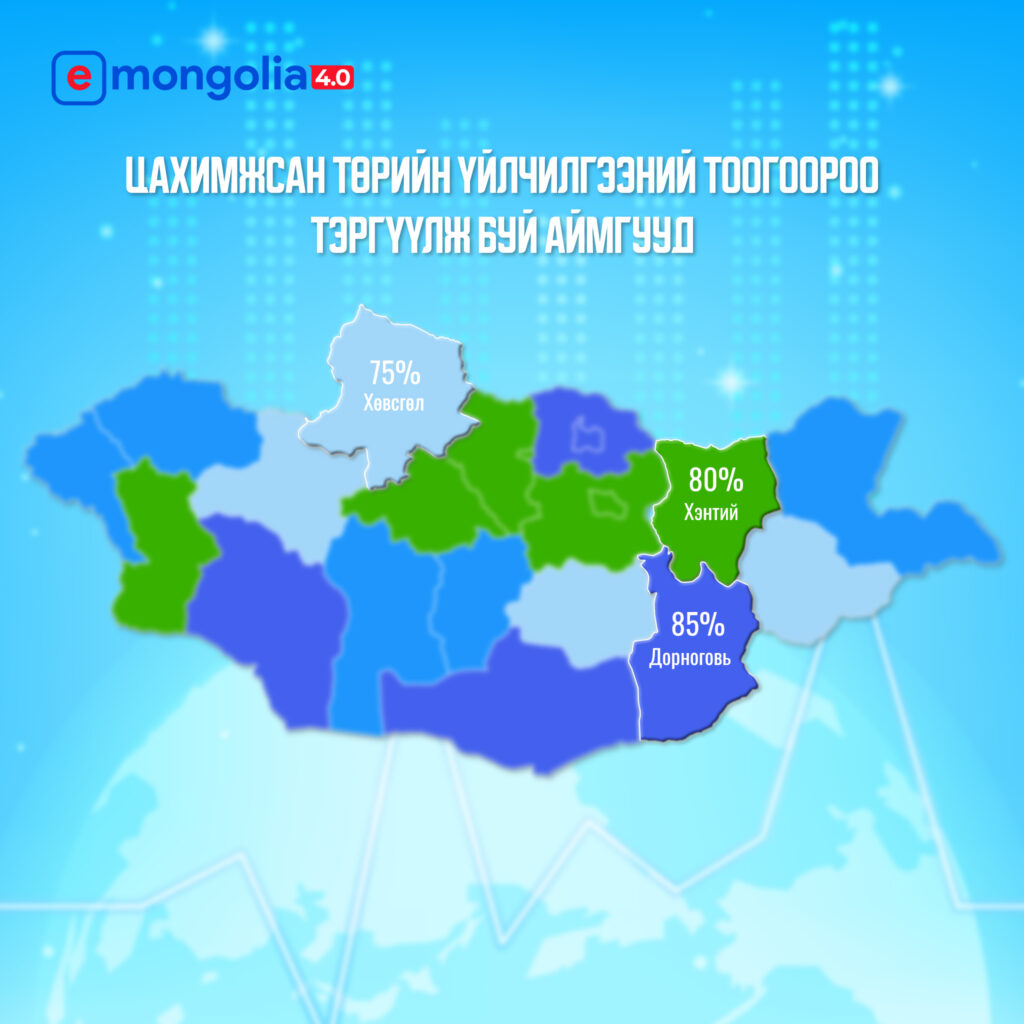
Specifically:
- • Khentii: 80% of the population is registered on the E-Mongolia system, with 78 services digitized.
- • Dornogovi: 85% of the population is registered on the E-Mongolia system, with 78 services digitized.
- • Khovsgol: 75% of the population is registered on the E-Mongolia system, with 75 services digitized.
- The research article by a scholar from the "E-Mongol Academy" has been published in the International Journal of Public Administration and Consulting (IJPAC)
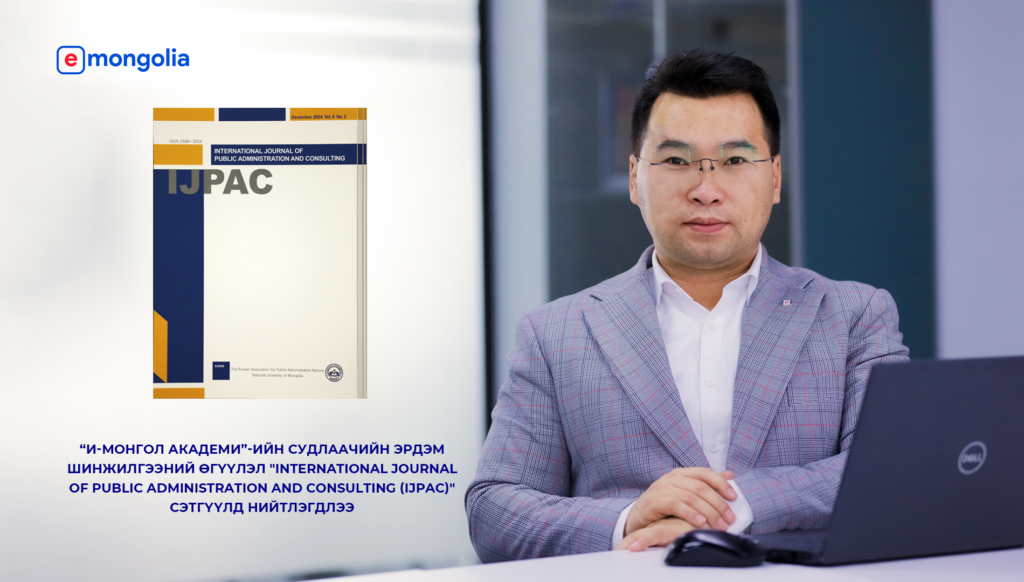
For the third time, the "E-Mongol Academy" State-Owned Enterprise has had an article published in a renowned international academic journal. This time, the article titled "Accessibility of Public Services in Mongolia for Citizens with Disabilities through the E-Mongolia System" was authored by N. Turbat, Director of the Academy's Training and Public Relations Department and a doctoral candidate at the National University of Mongolia. The article was published in the International Journal of Public Administration and Consulting (IJPAC), a prestigious international journal published by Hansung University in the Republic of Korea.
- A training session was conducted for the personnel of the units affiliated with the General Staff of the Armed Forces

In accordance with the 46th memorandum of the Government of Mongolia for 2023 and the 163rd resolution of 2024, the Minister of Digital Development, Innovation, and Communications, in coordination with the Government Secretariat, was assigned the responsibility of organizing nationwide initiatives to enhance the digital skills of the public.
To ensure the effective implementation of these policy directives, and with the objective of improving the knowledge and skills of public servants, fostering leadership capabilities, and facilitating ongoing professional development, the "E-Mongol Academy" state owned enterprise, in collaboration with the General Staff of the Armed Forces, organized a training program aimed at enhancing digital skills and bridging the digital divide. This training, designed to ensure preparedness for digital transformation, was conducted from January 23 to 31, 2025, by the Academy’s Training Department, focusing on the specified thematic framework.
